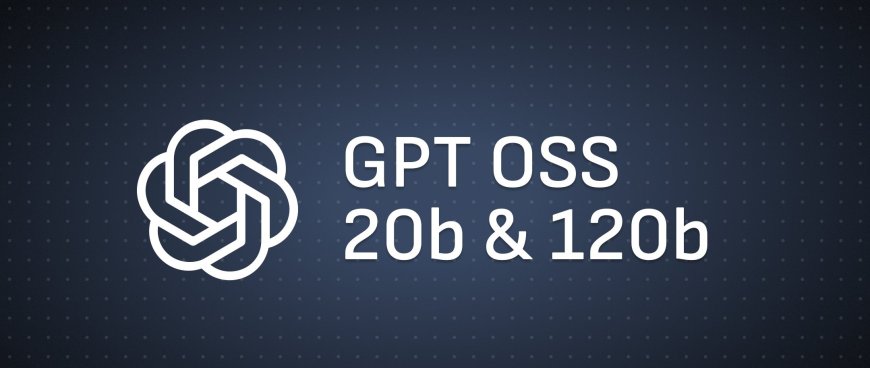GPT‑OSS 120B & 20B: OpenAI’s New Open-Weight Models
OpenAI releases GPT‑OSS 120B & 20B models under Apache 2.0, now available on Windows and Azure AI Foundry, enabling open, local, and cloud AI innovation.

Introduction
OpenAI has launched GPT‑OSS, a family of open-weight AI models—gpt‑oss‑120B and gpt‑oss‑20B—available under the Apache 2.0 license. These models let developers download, run, inspect, and fine-tune them locally or in the cloud
History & Significance
This marks OpenAI’s first open-weight model release since GPT‑2 in 2019, signaling a shift toward transparency and innovation. The move responds to growing demand from developers and rising competition from open-models like DeepSeek and Meta’s LLaMA
How It’s Used
-
gpt‑oss‑120B is designed for heavy reasoning workloads and runs well on a single enterprise GPU like an NVIDIA H100
-
gpt‑oss‑20B is lightweight, compatible with typical laptops and desktops (16 GB VRAM), and ideal for local inference and edge use
They are integrated into enterprise platforms such as Azure AI Foundry, Windows AI Foundry, and AWS Bedrock/SageMaker, enabling flexible deployment—whether locally or in the cloud
Advantages
-
Accessibility & Flexibility: Models can run fully locally or on private cloud infrastructure, offering greater control and low latency
-
Transparency & Customization: Open-weight access enables fine-tuning, auditing, or adapting models to domain-specific needs
-
Performance: On benchmarks, gpt‑oss‑120B matches o4‑mini for reasoning tasks, while gpt‑oss‑20B performs competitively against o3‑mini, despite its smaller size
-
Broad Integration: Supported across major platforms—Azure, Windows, AWS—making enterprise adoption seamless
Disadvantages & Challenges
-
Not Fully Open Source: Although weights are public, source codes and training data remain closed—so it's not truly open source
-
Hardware Requirements: Smaller model is accessible, but 120B version still demands high-end hardware (e.g., 80 GB GPUs)
-
Reliability Concerns: Some users reported hallucinations—incorrect responses on certain benchmarks like PersonQA
-
Security & Misuse Risk: Open-weight availability brings concerns around misuse; thorough safety audits are crucial
Conclusion
OpenAI’s GPT-OSS models represent a bold step toward open, locally deployable AI—offering powerful capabilities, flexibility, and transparency. Ideal for developers, researchers, and enterprises, they work across platforms and use cases. Yet, balancing openness with safety and resource constraints remains paramount as these technologies evolve.

 Ellofacts
Ellofacts 





